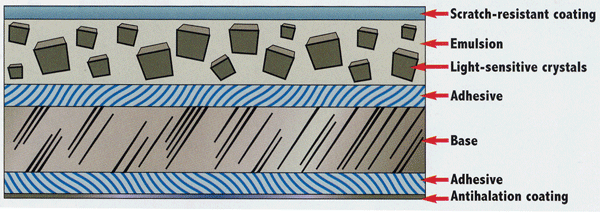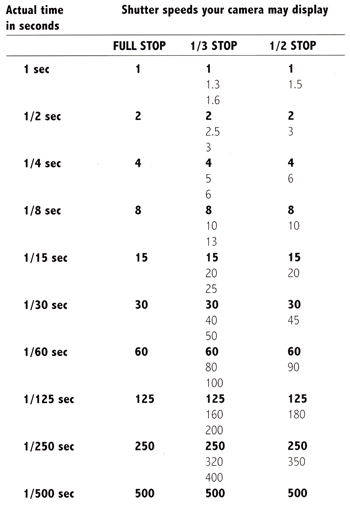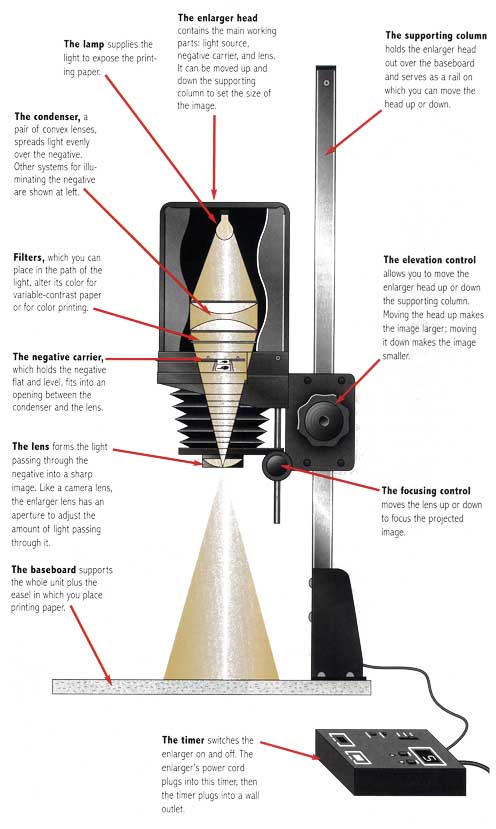Lecture: Syllabus Overview - Expectations, Requirements, Objectives,
Best Practices.
Lecture: Department and Facilities Policy Review and Tour
Begin fundamentals of visual phenomenology / camera technology
Basic Camera Operation
Lab:
Critique / Review 5 images of influence.
Assignments:
Bring in 5 Images either of your own or from public media sources
that
best represent your interest in photography.
Bring in Camera * practice framing
Initiate Journal - 5 pnts.
Reading/Handouts:
Camera manual
Chapt. 1 & 2 Short Course
Review Online Syllabus
Review Internet Resources
Search Artists:
Henri Cartier Bresson
Robert Frank
Ansel Adams
Robert Adams
3011-C Santa Rosa Ave.
Santa Rosa, California
USA, 95407
Map & Directions
http://shutterbugcamerashops.com/map-directions.html
Lecture:
Camera Fundamentals
Beginning Exposure
Lab:
Darkroom Orientation
Preparations for printing- Photograms
Artists:
Moholy-Nagy
Man Ray
Jerry Uelsmann
Olivia Parker
Assignment:
Photograms - object compositions - 10 pnts
Consider an assortment of objects that you would like to construct 3-5 compositions with ... translucent and reflective objects make for interesting shadow and outlines, light streaks etc...
Reading / Review:
Photograms and Montage works... <--Online
Click Here
Moholy-Nagy - From Pigment to Light - 1936
---------
Optional Assignment for Extra Credit Pinhole Camera
Reading/Handouts:
Oatmeal Box Pinhole Photography by Stew Woodruff
- How to Make and Take Pictures With Pinhole Cameras Made from Oatmeal Boxes
http://www.bonus.com/contour/pinhole_camaras/http@@/users.rcn.com/stewoody/index.htm
The Pinhole Gallery
http://www.pinhole.org/
Photo.net
http://www.photo.net/learn/pinhole/pinhole
Artists:
Jo Babcock
LOCAL PHOTO SUPPLY :
Jeremiah's Photo Corner
441 Sebastopol Avenue
(@ South A Street, a few doors down from the A Street Gallery) Santa Rosa, CA 95401
(707) 544-4800
FAX (707) 544-4894
Hours:
Tues-Fri 10-6, Sat 10-5
Lecture:
Continued Exposure...
Download and Print:
Printing Quick
Reference
Print, Sign and Return field trip liability waiver in pdf form below.
Lab:
First Exposures - roll film
Film
Development Quick Reference
shoot / print

Assignment:
Print, Sign and Return field trip liability waiver in pdf form via the link below:
http://www.santarosa.edu/for_students/student_affairs/pdf/SRJC_Field_Trip_Activity_Liability_Waiver.pdf
Bracket Roll (first roll) - Shooting and Developing -
10 pnts.
Bracketing Exposures - Choose a 2 subjects and make 5 bracketed exposures
of each.
1st exposure according to meter reading with a gray card.
2nd + .5 half step greater aperture selection or more exposure (over)
3rd + 1 whole step (full stop) greater aperture selection (over)
4th .5 half step smaller aperture selection or less exposure (under)
5th - 1 whole step smaller aperture selection or less exposure (under)
*Be sure to make notes of the exposures in your journal.
With the remaining exposures experiment with the shutter speeds + and or - one
shutter speed is equal to a full stop.
Reading/Handouts:
Film
Development Quick Reference
Chapters 3 & 4 - Short Course
Artists:
W. Eugene Smith
Minor White
Pablo Ortiz Monesterio
Sophie Calle



Here is a list of the camera equipment for sale by Kevin Imbimbo email him for more information -->[kevinimbimbo@yahoo.com].
Pentax K 1000
Sears F=28mm Macro Lens mdl.#202 736890
Rokinon F=80-250mm w/macro
Pentax-M F=50mm
1 large & 1 small lens case
Ambassador III - by Hervic, camera bag
Pentax AF 160 flash
Lecture:
Continued Exposure...
Lab:
First Exposures - roll film
Film Development Quick Reference
Printing - Contact Sheets - Photograms
Reading/Handouts:
Leaflet, Written for Los Angeles Museum - Edward Weston
ARTSEDGE: Formal Visual Analysis: The Elements & Principles of
Composition
Description:
Formal analysis is an important technique for organizing visual information.
In other words, it is a strategy used to translate what you see into
written words. This strategy can be applied to any work of art, from
any period in history, whether a photograph, sculpture, painting or cultural
artifact. http://artsedge.kennedy-center.org/content/3902/
Photo Alliance
http://www.photoalliance.com
The Lomographic Society - http://www.lomography.com/
http://www.lomography.com/about/
Welcome dear photo-adventurer. you are just about to discover the most interactiv,
vivid, blurred and crazy face of photography worldwide. we heartily and most
warmly invite you to dive into our unique online photo-features, to taste our
cameras and -most of all- to become a lomographer. help us to simply build the
biggest snapshot portrait of our planet and to revolutionize the picture communication
from the hip. prost.
Artists:
Karl Blossfelt
Eudora Welty
Stephen
Shore
William
Klein
Lecture:
Printing Procedures
:
Contact Sheets
Test Stips
Multi-Contrast Filters
Burning and Dodging
Multi-Contrast Filters
Lab:
First Exposures - roll film
Enlargement - Printing from Negatives
Assignment:
Contact Sheets of Bracket rolls - 10 Pnts
Shoot 1 roll minimum per week
Work Prints now through week 8
FIRST CRITIQUE - Contacts - (5 points)
-------------------------------------
Reading/Handouts:
Chapter 6 - Short Course
Printing Quick
Reference
Artists:
John Baldessari
Sally
Mann
Sherry Levine
Moriyama Daido
Lecture:
Working with
Ambient / Artifical Light
Lab:
Assignment:
Light and Shadow - 10 pnts.\
- pick a location
and photograph it on a recurring basis throughout the course of one
day.
36 exposures
minimum. Make photographs
which illustrated the changing conditions of the
light and shadow
in this location.
Reading/Handouts:
The Decisive Moment - Cartier-Bresson
Other readings :
http://www.basearts.com/curriculum/readings/
--------------
Artists:
http://www.basearts.com/curriculum/masters/
Harry
Callahan
Immogen Cunningham
Nan Goldin
Richard Misrach
Mark Klett
-------------------
Pushing Film allows you to shoot in lower light situations.
This solution essentially fools the light meter by setting it at a
higher ISO or ASA rating and then overdeveloping the film in
order to compensate for the underexposure.
Although your experiences may vary somewhat - here is a good starting base for pushing:
400 ASA pushed to 800 ASA - 50% overdevelopment - 10 minutes normal
development time = 15 minutes.
400 ASA pushed to 1600 ASA - 100% overdevelopment - 10 minutes normal
development time = 20 minutes.
Lecture:
Lab:
Object of Art - Total point = (10 pnts)
Select an object- must be larger than 1/2 your body size, no larger than you are able to carry.. Choose a location for placement of said object and photograph. Includes developing a written thesis of the object and how you have photographed and presented it. Alternative methods in the final presentation are incouraged with review and approval by instructor.
Make a minimum of 36 exposures of the object of art from a variety of vantage points, angles /lighting situations or conditions, utilizing various lenses if required or desired. Utilize any tool at your disposal in both the shooting, development, printing, or presentation processess.
Reading/ Discussion:
Artists:
Harold Edgerton
Irving Penn
Bruce Weber
Dieter
Appelt
John
Divola
Uta Barth
Lecture:
Legal / Copyright Issues
Protecting your images
Lab:
Presentation / Mounting
Discussion:
Final Portfolio Expectations - see final for description.
Assignment:
SELF Portait - can be interpreted entirely by you... -( 10 points)
Reading/Discussion:
Artists:
J. John Priola
Aziz and Cucher
Michael Light
Regan Louie
Linda Connor
Henry Wessel
Final Portfolio = All prints, contacts and negatives should be presented in a binder.
All assignments should be represented by a contact sheet and negatives
3-5 Contact Sheets w/Negatives
2 - Photogram Composition
5 - Final Prints
(An agreed upon choice of images may be substituted for the print requirement in each shooting assignment.)
---
2 prints - Light and Shadow
2 prints - OBJECT OF ART
1 print - SELF-PORTRAIT
Final Critique - 25 points
---------
Margaret Bourke-White
Annie Liebovitz
Yosuf Karsh
Lee Friedlander
Richard Prince
Fredrick Sommer
Duane Michaels
Mary Ellen Mark
Fall Art 36 A/B Ends Here
Lecture:
Lab:
Reading::
Lecture:
Critique:
Reading:
Artists:
Lecture:
Lab:
Assignment:
Reading::
Artists:
Lecture:
Lab:
Artists:
Lab:
Reading:
Artists:
Lecture:
Lab:
Lab
